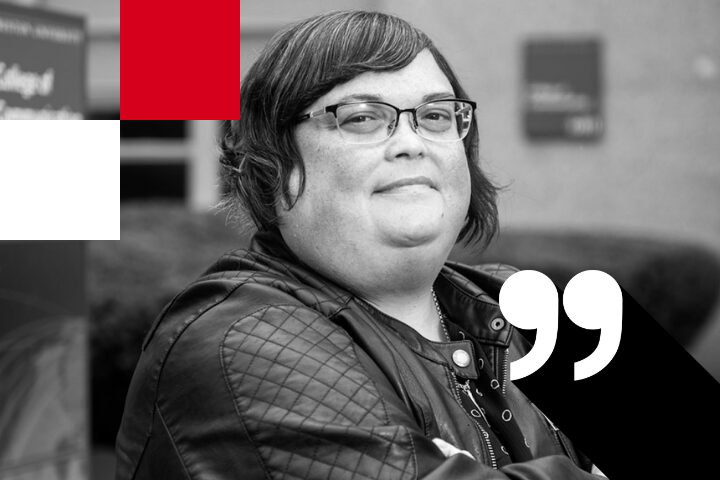Listen to the article
Disinformation Evolves: From Social Media Shadows to Open Political Strategy
Political disinformation has transformed from a covert social media tactic to a brazen mainstream strategy, according to award-winning sociologist Joan Donovan, founder of the Critical Internet Studies Institute. In a recent interview, Donovan shared insights on how disinformation has evolved and impacted American politics.
The 2024 election saw what Donovan calls “the biggest disinformation campaign of the year” during the presidential debate between Kamala Harris and Donald Trump. She points to Trump’s claim about migrants in Springfield “eating cats and dogs” as a classic disinformation technique.
“This is a classic form of disinformation where someone in power points the blame for society’s problems on groups that cannot represent themselves, do not have access to media, are not in positions of power, and you demonize them,” Donovan explained. She noted that when J.D. Vance later acknowledged the narrative mattered more than actual events, it demonstrated how the campaign was designed to make Americans believe Trump would solve border issues – “an intractable issue since the dawn of America.”
The evolution of disinformation since 2016 has followed distinct cycles, according to Donovan’s research. In 2016, “fake news” emerged as a focus, with the realization that the internet was “essentially full of spam” where “novel and outrageous” stories could generate attention and profit. During this period, figures like Roger Stone and Steve Bannon positioned Trump as an outsider who would “drain the swamp” or “build the wall.”
By 2018, platform companies began addressing what they termed “ABC” – actors, behaviors, and content – while researchers pointed to algorithmic design as a fundamental problem. A landmark MIT study revealed that falsehoods spread “further, faster on Twitter and penetrate more deeply than the truth,” forcing tech companies to reconsider their approaches.
The landscape shifted again by 2020, with platforms cracking down on anonymous accounts and botnets while becoming more vigilant about how their advertising technologies enabled disinformation campaigns. Government agencies increased their involvement in monitoring foreign influence operations targeting U.S. public opinion.
Donovan identifies the period between summer 2020 and January 6, 2021, as a pivotal moment when Trump began claiming mail-in ballots were unreliable – a strategy she describes as “pretexting” to lay groundwork for contesting election results. After his loss, this culminated in the Capitol riot, representing a disturbing new frontier in social media’s power.
“This is the first time you have a sitting president using the internet to directly call their constituents out to act as his own private army,” Donovan observed. She highlighted research from her time at the Shorenstein Center showing many Capitol rioters were motivated by Trump’s direct call to action – demonstrating social media’s role not just in distributing information but in organizing and moralizing behavior.
Looking ahead to coverage of the new administration, Donovan urges journalists to “stay close to the facts” while acknowledging the challenges they face. “What we know is that Trump is a propagandist. He loves to do the thing that creates the most outrage,” she said, pointing to controversial Cabinet appointments as examples where thorough background reporting becomes essential.
She warns of “an intense suppression campaign by politicians to scare people from telling the truth,” noting that journalists covering sensitive topics like reproductive rights have faced doxxing, swatting, and safety threats. Donovan recommends news organizations develop security strategies for their reporters and be prepared for potential “lawfare” campaigns against their reporting.
Donovan also cautions journalists about technology vulnerabilities, particularly on platforms like X (formerly Twitter). “Do not contact sources on X. DMs on X are not encrypted, which means that they are visible and available to anyone that has access at the company,” she warned, recommending encrypted platforms like Signal for sensitive communications.
As an assistant professor of journalism and emerging media studies at Boston University, Donovan has established herself as a leading voice on media manipulation and democracy. Her work, including the book “Meme Wars: The Untold Story of the Online Battles Upending Democracy in America,” has appeared in prominent outlets such as NPR, The New York Times, and MIT Technology Review.
Fact Checker
Verify the accuracy of this article using The Disinformation Commission analysis and real-time sources.




9 Comments
The 2024 election sounds like it was a prime example of how disinformation can infect the political process. Voters need to remain vigilant and seek out reliable information from reputable sources.
Agreed. Fact-checking and media literacy should be a core part of civic education to equip the public with the tools to navigate the modern information landscape.
The sociologist raises important points about how those in power can weaponize disinformation to scapegoat vulnerable groups. Shining a light on these tactics is an important first step.
Absolutely. Disinformation thrives in the shadows, so having experts like Donovan analyze and expose these patterns is crucial for strengthening democratic discourse.
Fascinating insights from the sociologist on how disinformation has evolved into a mainstream political strategy. Demonizing vulnerable groups is a classic tactic to distract from real issues.
Interesting that the Vance quote hints at a cynical calculation behind the disinformation campaign – using false narratives to stir up emotions, rather than address real issues. Disturbing, but not surprising.
It’s concerning to see how false narratives can take on a life of their own, even when the underlying events are questionable. Fact-checking and media literacy are critical to counter this trend.
Agreed. Voters need to be vigilant about verifying claims, especially on polarizing issues like immigration. Relying on authoritative sources is key to cutting through the disinformation.
This article highlights the alarming trend of disinformation being weaponized for political gain. Sociologists like Donovan play a vital role in exposing these patterns and helping the public understand the dynamics at play.